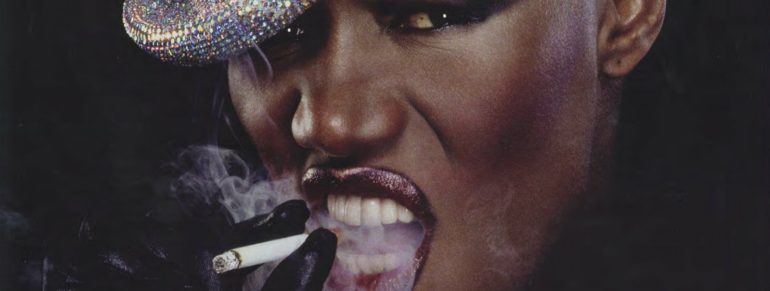BBC Films is celebrating 25 years of film-making, and unveiled their slate earlier today with 15 films set to be released this year. Amongst the films announced was an Irish/British co-production, The Pervert’s Guide to Ideology director Sophie Fiennes’ new documentary Grace Jones – The Musical Of My Life.
The film aims to reach beyond Grace Jones’ iconic mask in an observational portrait that is a multi-narrative journey through the private and public realms of the legendary singer and performer.
Katie Holly of Blinder Films is attached as producer, alongside James Wilson, Emilie Blézat, and Sophie Fiennes herself. BBC Films join the BFI Film Fund and the Irish Film Board as co-financers.
Grace Jones – The Musical Of My Life, takes the viewer on an intimate, electrifying journey that moves between performance, family, artist and gypsy – exploring the fascinating world of pop cultural phenomenon Grace Jones.
Larger than life, bordering on cartoon, wild, scary and androgynous – Grace Jones plays all these parts. Here we discover her also as a daughter, mother, sister and grandmother. Such extremes constantly reposition Jones in the narrative, insisting on contradiction itself as a fundamental human truth.
Musical sequences of Jones in performance are the structural framework binding the film. Staged and lit for the camera, presented within a classical proscenium theatre to a live audience, these dramatic and original sequences at times push beyond the physical limits of the stage into a theatrical infinity where other elements are revealed; Jones’ mother singing her Church song, the band (otherwise not visible on her stage). The stage is where her most extreme embodiments are realised and her theatrical imagination lets loose; this is where the musical of her life is played out.
Grace is the narrator of her own story. Her voiceover alternates between speaking live to her fans – a confessional to the crowd – and personal reflections that address us, the viewer, directly. This proximity to the viewer is sustained in the documentary element of the film. In radical contrast to the high production spectacle of the performance there is unique observational footage where we encounter Grace Jones as we have never seen her – intimate and unmasked.
Travelling around Jamaica on a family holiday, recording the autobiographical songs for her album Hurricane, and as an exotic nomad at large in the world, moving between cities from Tokyo to Moscow, to Paris, London and New York.
In Jamaica Grace attends a Jones family reunion and goes to the church where Mother sings and brother Bishop Noel Jones preaches. There is a sensual exploration of the island, delighting in its sounds, smells and tastes, but also a chance to examine the traumatic church childhood that Jones and her brothers endured, raised partly by their grandmother and step grandfather, ‘Mas’P’.
In the dusty greys and browns of a yard in Spanish Town, Grace and brother Chris reunite with their beloved elderly neighbour, Miss Myrtle, to recall the past. And in the mountains high above Kingston, late into the night, Grace reflects on the emotional roots of her stage act.
The narrative links between Grace’s Jamaican childhood, and the personal songs from Hurricane move the action seamlessly between the recording studio, Jamaica, and the stage spectacle itself.

